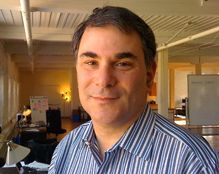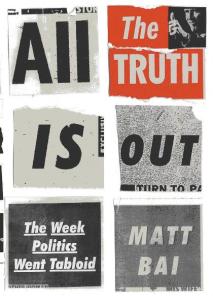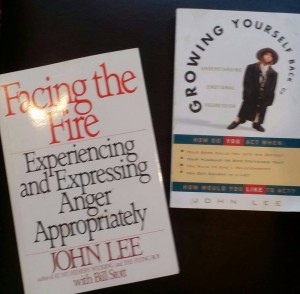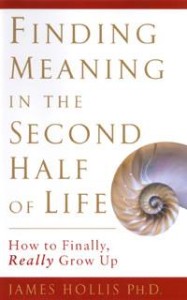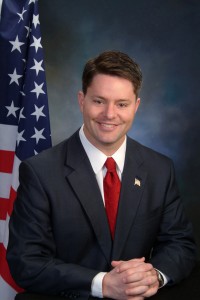 Rod Jetton was once the most powerful lawmaker in Missouri.
Rod Jetton was once the most powerful lawmaker in Missouri.
As speaker of the Missouri House, he had the power to exalt or kill any bill that flowed through the General Assembly. From all appearances, he had a bright political future.
Behind the scenes, however, Jetton was on a course for self-destruction.
By the time he left office, the FBI was investigating him for bribery. He was facing serious jail time after being accused of felony assault. Just months after being one of the most powerful men in Missouri politics, Jetton was broke and without a job.
Jetton’s life has stabilized in recent years. He decided to recount his downfall in the book Success Can Kill You, which was released a few weeks ago. He said he hopes it serves as a warning to those entering the political world.
“I thought this might be something that would hopefully help somebody say, ‘I need to pay a little bit more attention to this. I need to be careful. I don’t want to make those mistakes that Rod made,’” Jetton said in a telephone interview. “You know, maybe be a warning to people: Don’t make these mistakes.”
Jetton has talked about his tribulations before through essays on the Recovering Politician website. But the book offers new insight into how misplaced priorities, flattery and bitterness can seriously backfire.
Dave Robertson, a political science professor at the University of Missouri-St. Louis, said Jetton’s story showcases how the pressures of politics and legislative duties can impact people. He said others could learn a lot from his story.
“It’s Shakespearean,” Robertson said. “You put some character in a situation where their weaknesses are going to be accentuated, and the deterioration is going to be accelerated. They’re going to go downhill in a pretty dramatic way.”
At this velocity
Jetton’s rise in Missouri politics was rapid. In just four years, he went from being an inexperienced backbencher in the Republican minority to the most powerful legislator in the state.
As speaker of the House from 2005 to 2009, there’s little debate that Jetton’s tenure was fruitful from a policy perspective. Many longtime Republican priorities were passed into law. But Jetton’s efforts to grow the GOP majority and climb the leadership ladder took its toll.
He detailed in his book how fights within his caucus made him vindictive and eager to prove that he was “the man.” That included stripping then-House Budget Chairman Brad Lager, R-Savannah, of his post; removing then-Rep. Scott Lipke, R-Scott County, as chairman of a public safety-related committee and making sure none of then-Sen. Matt Bartle’s legislation ended up passing the House.
“I used to think before I got into politics that it was the king of the mountain. That we were fighting the Democrats to get to the top and rule the world,” Jetton said. “And then you start learning that there’s two mountains. You’ve got a Republican mountain and the Democratic mountain. And the fight to get to the top of your own mountain is so much worse than I ever dreamed.
“When you’re speaker, you have the stroke to step up and throw down,” he added. “And the pride that went with it started making me do that more and more. Which led to more conflict.”
All the while, Jetton was spending long stretches of time away from his wife and children, which eventually led to his 2009 divorce. He had begun drinking more and more – even though he had sworn off alcohol after issues with the substance as a youth. And he became disconnected with his religious faith.
“It’s probably the most embarrassing thing about the story for me. I know that I let that stuff change the person I was,” Jetton said. “My priorities, my values, my focus – it all started changing a little bit. I think it’s a combination of the personal pride a person has and the flattery that they receive.”
After term limits forced him to leave office in 2009, Jetton transitioned into political consulting. But that would be upended in spectacular fashion.
Near the end of 2009, Jetton was charged with felony assault. The startling details within the probable cause statement prompted the national headlines. He was accused of hitting and choking a woman during a sexual encounter. Soon after the news broke, Jetton shut down his lucrative consulting business.
“There was no blaming anybody. As much as I don’t really want to relive all of that, at the same time, that brought me to my knees and I finally said, ‘OK, I’ve got to straighten myself out and get back to where I need to be.’,” Jetton said. “Without that happening, I don’t know if I would have done that.”
Jetton was also the target in a federal grand jury investigation into whether campaign contributions played a role in killing one of Matt Bartle’s bills regulating strip clubs. In both cases, Jetton was facing significant jail time.
The lessons of hitting bottom
One key element of the book is how his December 2009 arrest prompted him to reevaluate his priorities. He had the time, as he was unemployed, financially ruined and living in a friend’s basement. Things were so bad, he said, that he couldn’t get a job as a salesman at Sears.
“I was isolated and my world was over,” Jetton said. “Now, as bad as that was, there was a benefit to it that I’m thankful for. Most of our lives are so busy and hectic that we don’t ever have an opportunity to stop and think or, like the professors, take a sabbatical. Life just starts speeding up and you never have time to stop and think about where you are and what your priorities are.
“Well, the merry-go-round was going around pretty fast for me,” he added. “But all of a sudden, it stopped.”
Another factor, he said, in his personal recuperation was his reconnection with his faith. It’s a major theme throughout his book.
“When you lose your reputation, it frees you up in a way that you don’t have to worry about how everybody is thinking about you every second of the day,” Jetton said. “It wasn’t hard to figure out. I did these certain actions and it led to these problems that led to my destruction. Well, do I want to keep doing that?”
Jetton eventually got his professional career back on track as his legal woes dissipated. He didn’t, for instance, face federal charges due to statute of limitation issues. The felony assault case was resolved when he pleaded guilty to a misdemeanor charge in 2011.
Even though the case is settled, Jetton said, it still has a lingering impact.
“I know in my life before my troubles, if I read something about somebody like that, I would believe that they did it,” Jetton said. “And if they got off, I would have talked about how they just manipulated the political system. It wouldn’t be a hard case to explain that a powerful, former speaker manipulated the judicial system to get a great deal. So, I’m quite confident that most people – especially if they don’t know me or the situation – are going to say ‘that’s just another crooked politician getting off.’”
Is it worth it?
After reading Jetton’s book, I was left wondering if being a part of the Missouri General Assembly is worth it
Sure, state representatives and senators have the power to make public policy changes. And there is a level of prestige and public service that comes with the job. But is a part-time job that pays roughly $35,000 a year really worth pursuing if it can lead to losing your family, decimating your livelihood and compromising your values? It doesn’t seem like a good trade-off.
I asked Jetton if he would have been better off if he had decided not to run for the state legislature in 2000. He said, hypothetically, he might have been able to make more money in the private sector and spend less time away from his family.
“But that being said, you can’t go back. You can’t change,” said Jetton, adding that he was responsible for his actions — not the office.
That brings about another question: Does the culture of Jefferson City cause morally-upright people to change? Or do the financial and time commitment barriers of entry compel worthy people not to pursue state legislative offices?
George Connor, a political science professor at Missouri State University, said that both Jefferson City’s culture and the nature of term limits plays a role.
“Somebody like Jetton, as a number of other people in politics, has an enormous well of ambition. And if you make that ambition a priority over family and other kinds of things, the opportunity is there to mess you up real good.” — University of Missouri-St. Louis professor Dave Robertson
He said the “loose relationships” between legislators and interest groups provides “opportunities for individual to make bad decisions.”
“It’s a free-for-all,” Connor said. “It’s a little bit like the Wild West with respect to campaign funding. It’s like the Wild West with respect to lobbyist gifts. We’re one of the least regulated states with respect to the relationship between lobbyists and legislators.”
UMSL’s Dave Robertson said different organizations have incentives that skew people’s behaviors. For legislators, the desire to raise money for office and to satisfy constituents “leads to a number of consequences that complicate the quest for a completely clean reputation.”
“I wouldn’t say that it changes the fundamental person as much as it gives them incentives to behave a lot differently and in a lot less appealing way,” Robertson said. “Somebody like Jetton, as a number of other people in politics, has an enormous well of ambition. And if you make that ambition a priority over family and other kinds of things, the opportunity is there to mess you up real good.”
To be sure, both Connor and Jetton said there are lawmakers who are able to enter and leave the legislature with their principles and reputation in tact. Still, Jetton does have a word of caution for relatively young political aspirants: It may be best to wait.
“Especially if you live far from Jefferson City, it just takes you away,” Jetton said. “And if you’re a young guy and you want to be a hard charger, you’re not just going to be able to go there and do a typical Monday through Thursday thing. You’re going to want to go to some events and do some extra stuff that makes you travel even more. I guess would say ‘think about this for sure and see if you’re a little older and the kids are gone.’
“But if you do it, I would give them a copy of the book and say, ‘Hey, I know you don’t think this can happen to you.’,” he added.
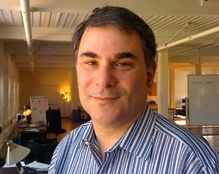 I am reminded of the power of this simple idea as my friend Bill Taylor launches his new book,Practically Radical (a must read for all innovators). Bill is a magnet for innovation stories and a master storyteller. I’ve been a Bill Taylor fan since he founded Fast Company and was surprised when he showed up at BIF-1, our very first Collaborative Innovation Summit, back in 2004. I shouldn’t have been surprised. Bill loves searching for compelling innovation stories among the unusual suspects. He has attended all but one of our six annual summits to-date including co-chairing several of them. There have been countless random collisions. As I started reading Practically Radical I was immediately hit with a powerful reminder.
I am reminded of the power of this simple idea as my friend Bill Taylor launches his new book,Practically Radical (a must read for all innovators). Bill is a magnet for innovation stories and a master storyteller. I’ve been a Bill Taylor fan since he founded Fast Company and was surprised when he showed up at BIF-1, our very first Collaborative Innovation Summit, back in 2004. I shouldn’t have been surprised. Bill loves searching for compelling innovation stories among the unusual suspects. He has attended all but one of our six annual summits to-date including co-chairing several of them. There have been countless random collisions. As I started reading Practically Radical I was immediately hit with a powerful reminder. 




